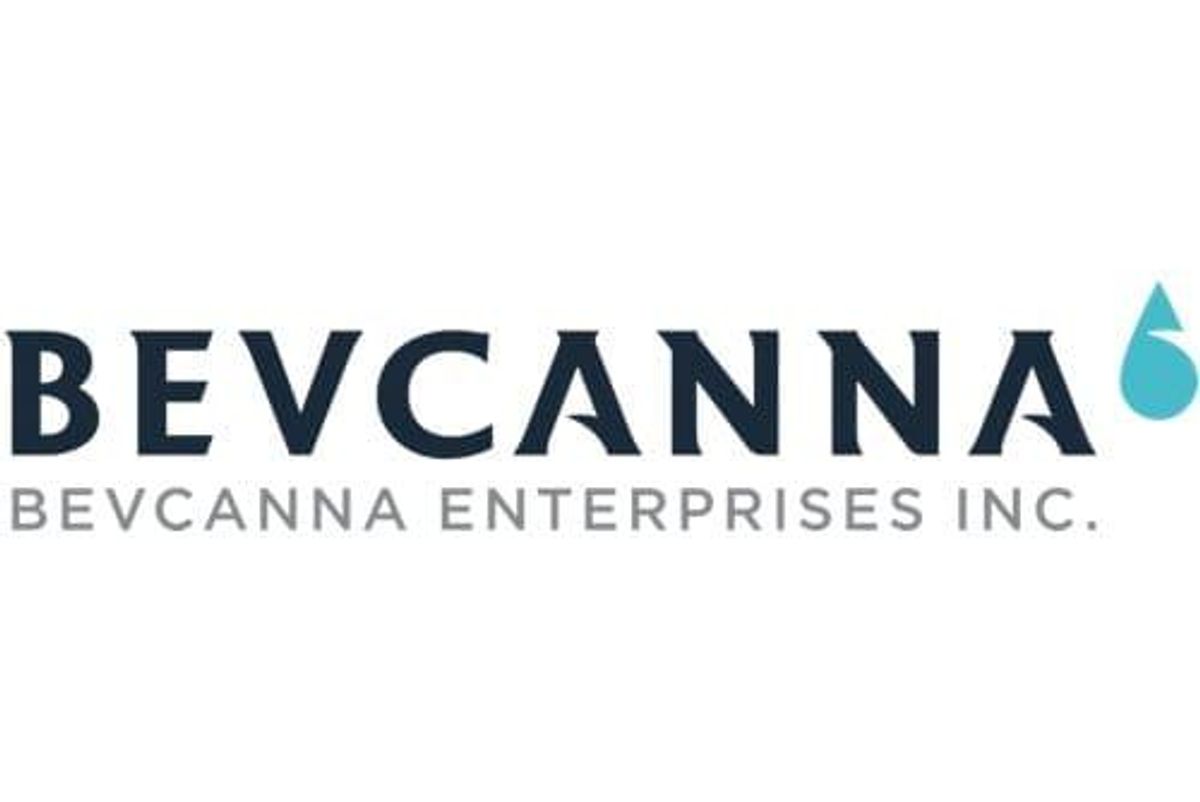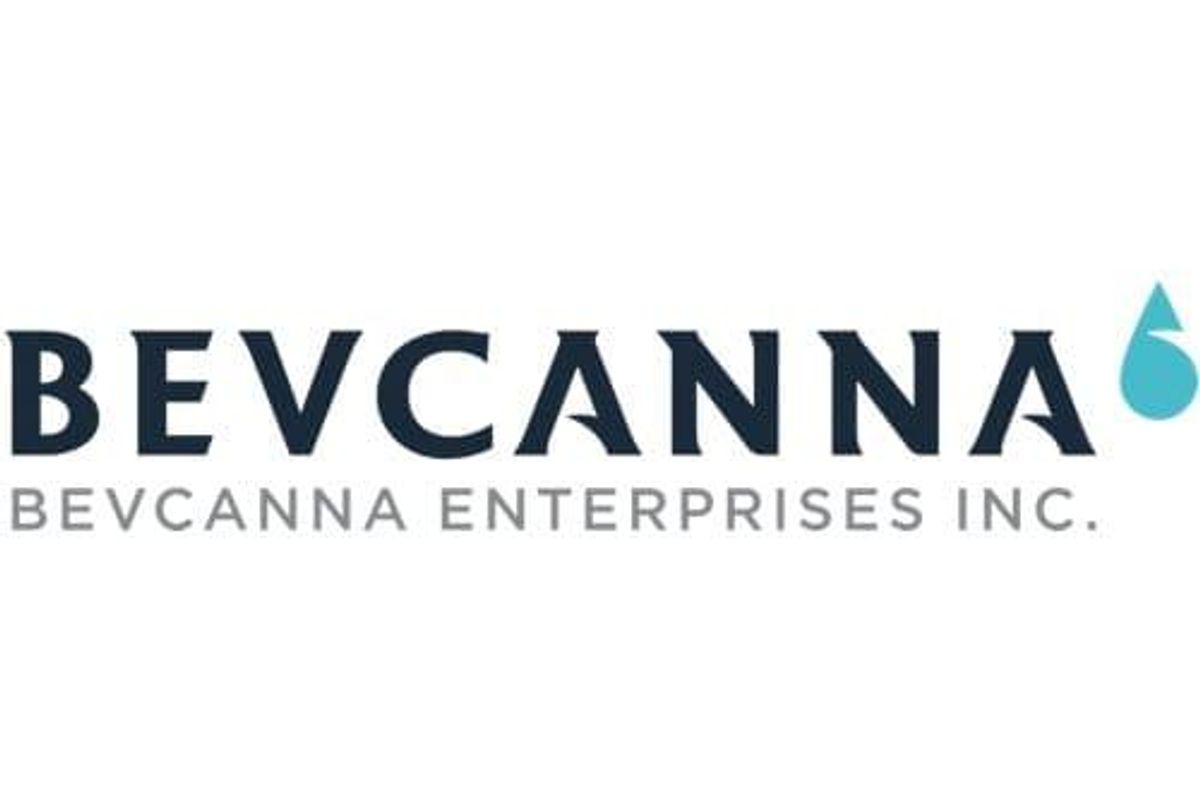
Global demand for plant-based functional products accelerating plan to scale the brand internationally
Emerging leader in innovative health and wellness beverages and products, BevCanna Enterprises Inc. ( CSE:BEV , Q:BVNNF , FSE:7BC ) (" BevCanna " or the " Company ") is excited to announce the anticipated launch of its market-leading TRACE brand in the U.S., initially through its new e-commerce website and subsequently in natural specialty and retail stores nationally.
TRACE continues to see market share growth in the Canadian plant-based mineral category, and BevCanna is now setting its sights on the burgeoning U.S. market for plant-based functional beverages and nutraceuticals. The significant demand for this innovative category of wellness-focused beverages and nutraceuticals has accelerated the Company's plan to scale the TRACE brand internationally secure a global leadership position.
"We're thrilled to introduce the TRACE brand to U.S. consumers, both through our e-commerce channel, and subsequently in retailers nationwide," said Melise Panetta, President of BevCanna. "The demand for plant-based functional products in the U.S. is growing at a rapid pace, and our proprietary TRACE mineral formulation provides the wellness benefits that consumers are looking for. We're already seeing significant interest from distributors, and expect this to intensify as awareness of the TRACE brand grows."
BevCanna is currently developing a U.S. facing e-commerce website, and is also in active discussions with a number of U.S. distributors, with a focus on penetrating both natural specialty and traditional retailers.
The TRACE suite of products will initially focus on their line of plant-based mineral beverages and nutraceuticals, including RTD beverages, shots, and mineral concentrate, along with new products under development.
Each of TRACE's plant-based products include TRACE's proprietary fulvic and humic mineral formula, sourced from ancient organic compounds which are highly concentrated sources of trace minerals. Recognized benefits of the Health Canada-approved formulations include improvements to cognitive performance, gut health and immune function, and stimulating the body to better metabolize carbohydrates, fats and proteins.
Gut Health - positively affects gut bacteria, promotes cellular health and nutrient absorption
Immune Function – replenishes and floods the body with trace minerals, boosting antioxidants to prevent oxidative stress and helping to maintain a healthy immune system
Cognitive Performance - shown to help protect against cognitive degeneration and decline, keeping the mind sharp
Whole Body Wellness - naturally eliminate harmful substances that may be found in the bloodstream, assisting in their removal from the body.
About BevCanna Enterprises Inc.|
BevCanna Enterprises Inc. ( CSE:BEV , Q:BVNNF , FSE:7BC ) is a diversified health & wellness beverage and natural products company. BevCanna develops and manufactures a range of plant-based and cannabinoid beverages and supplements for both in-house brands and white-label clients.
With decades of experience creating, manufacturing and distributing iconic brands that resonate with consumers on a global scale, the team demonstrates an expertise unmatched in the nutraceutical and cannabis-infused beverage categories.
Based in British Columbia, Canada, BevCanna owns a pristine alkaline spring water aquifer and a world–class 40,000–square–foot, HACCP certified manufacturing facility, with a bottling capacity of up to 210M bottles annually. BevCanna's extensive distribution network includes more than 3,000 points of retail distribution through its market-leading TRACE brand, its Pure Therapy natural health and wellness e-commerce platform, its fully licensed Canadian cannabis manufacturing and distribution network, and a partnership with #1 U.S. cannabis beverage company Keef Brands .
Disclaimer for Forward-Looking Information
This news release contains forward-looking statements. All statements, other than statements of historical fact that address activities, events or developments that the Company believes, expects or anticipates will or may occur in the future are forward-looking statements. Forward-looking statements in this news release include statements regarding: global demand for plant-based functional products accelerating plan to scale the brand internationally; the anticipated launch of its market-leading TRACE brand in the U.S., initially through its new e-commerce website and subsequently in natural speciality and retail stores nationally; market share growth in the Canadian plant-based mineral category; the burgeoning U.S. market for plant-based functional beverages and nutraceuticals; the significant demand for this innovative category of wellness-focused beverages and nutraceuticals has accelerated the Company's plan to scale the TRACE brand internationally secure a global leadership position; that the demand for plant-based functional products in the U.S. is growing at a rapid pace; the Company's proprietary TRACE mineral formulation provides the wellness benefits that consumers are looking for; that the Company is seeing significant interest from distributors, and expect this to intensify as awareness of the TRACE brand grows; that BevCanna is currently developing a U.S. facing e-commerce website, and is also in active discussions with a number of U.S. distributors, with a focus on penetrating both natural specialty and traditional retailers; that the TRACE suite of products will initially focus on their line of plant-based mineral beverages and nutraceuticals, including RTD beverages, shots, and mineral concentrate, along with new products under development; and other statements regarding the business plans of the Company. The forward-looking statements reflect management's current expectations based on information currently available and are subject to a number of risks and uncertainties that may cause outcomes to differ materially from those discussed in the forward-looking statements.
Although the Company believes that the assumptions inherent in the forward-looking statements are reasonable, forward-looking statements are not guarantees of future performance and, accordingly, undue reliance should not be put on such statements due to their inherent uncertainty. Factors that could cause actual results or events to differ materially from current expectations include, among other things: general market conditions; changes to consumer preferences; volatility of commodity prices; future legislative, tax and regulatory developments; inability to access sufficient capital from internal and external sources, and/or inability to access sufficient capital on favourable terms; the inability to implement business strategies; competition; currency and interest rate fluctuations; inability to successfully negotiate and enter into commercial arrangements with other parties; and other factors beyond the control of the Company and its commercial partners. The Company disclaims any intention or obligation to update or revise any forward-looking statements, whether as a result of new information, future events or otherwise, except as required by law, and the Company does not assume any liability for disclosure relating to any other company mentioned herein.
The Company announces that is has settled debt (the "Debt Settlement") in the amount of $473,414 owed by the Company to certain creditors of the Company in exchange for 614,825 common shares (each, a "Debt Settlement Share") at a deemed price of $0.77 per Debt Settlement Share.
Of the Debt Settlement Shares, 434,091 are subject to a hold period of four months and one day from the date of issuance and 180,734 are not subject to any hold period.
The debt settlements with two directors (collectively, the "Director Settlements") were "related party transactions" within the meaning of Multilateral Instrument 61-101 Protection of Minority Security Holders in Special Transactions ("MI 61-101"). The Director Settlements were exempt from the valuation requirement of MI 61-101 by virtue of the exemptions contained in section 5.5(b) of MI 61-101 as the Company's common shares are not listed on a specified market and from the minority shareholder approval requirements of MI 61-101 by virtue of the exemption contained in section 5.7(1)(a) of MI 61-101 in that the fair market value of the Director Settlements did not exceed 25% of the Company's market capitalization. As the material change report disclosing the Director Settlements is being filed less than 21 days before the transaction, there is a requirement under MI 61‐101 to explain why the shorter period was reasonable or necessary in the circumstances. In the view of the Company it was necessary to immediately close the Director Settlements and therefore, such shorter period was reasonable and necessary in the circumstances to improve the Company's financial position.
None of the securities acquired in the Debt Settlement will be registered under the United States Securities Act of 1933, as amended (the "1933 Act"), and none of them may be offered or sold in the United States absent registration or an applicable exemption from the registration requirements of the 1933 Act. This news release shall not constitute an offer to sell or a solicitation of an offer to buy nor shall there be any sale of the securities in any state where such offer, solicitation, or sale would be unlawful.
View source version on businesswire.com: https://www.businesswire.com/news/home/20210505005371/en/
On behalf of the Board of Directors:
John Campbell, Chief Financial Officer and Chief Strategy Officer
Director, BevCanna Enterprises Inc.
For media enquiries or interviews, please contact:
Wynn Theriault, Thirty Dash Communications Inc.
416-710-3370
wynn@thirtydash.ca
For investor enquiries, please contact:
Bryce Allen, BevCanna Enterprises Inc.
778-766-3744
bryce@bevcanna.com
